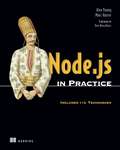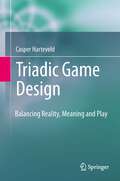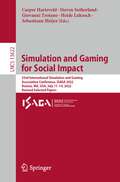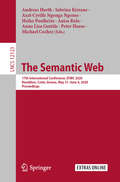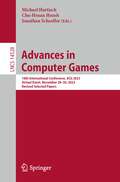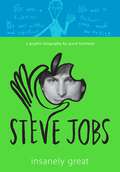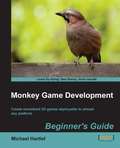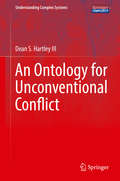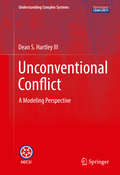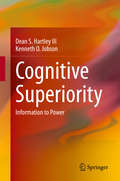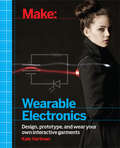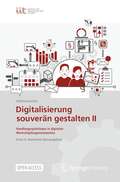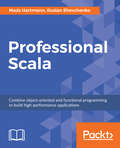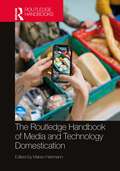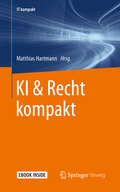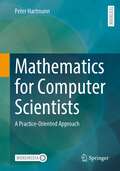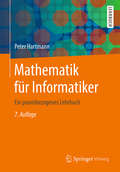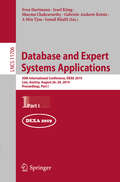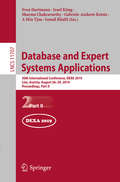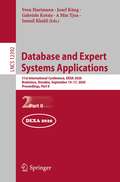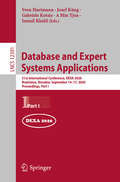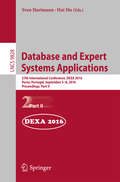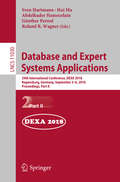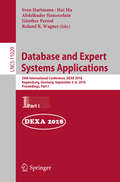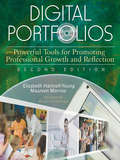- Table View
- List View
Node.js in Practice
by Marc Harter Alex YoungSummary Node.js in Practice is a collection of fully tested examples that offer solutions to the common and not-so-common issues you face when you roll out Node. You'll dig into important topics like the ins and outs of event-based programming, how and why to use closures, how to structure applications to take advantage of end-to-end JavaScript apps, and more.Purchase of the print book includes a free eBook in PDF, Kindle, and ePub formats from Manning Publications.About the BookYou've decided to use Node.js for your next project and you need the skills to implement Node in production. It would be great to have Node experts Alex Young and Marc Harter at your side to help you tackle those day-to-day challenges. With this book, you can!Node.js in Practice is a collection of 115 thoroughly tested examples and instantly useful techniques guaranteed to make any Node application go more smoothly. Following a common-sense Problem/Solution format, these experience-fueled techniques cover important topics like event-based programming, streams, integrating external applications, and deployment. The abundantly annotated code makes the examples easy to follow, and techniques are organized into logical clusters, so it's a snap to find what you're looking for.Written for readers who have a practical knowledge of JavaScript and the basics of Node.js.What's InsideCommon usage examples, from basic to advancedDesigning and writing modulesTesting and debugging Node appsIntegrating Node into existing systemsAbout the AuthorsAlex Young is a seasoned JavaScript developer who blogs regularly at DailyJS. Marc Harter works daily on large-scale projects including high-availability real-time applications, streaming interfaces, and other data-intensive systems.Table of ContentsPART 1 NODE FUNDAMENTALS Getting started Globals: Node's environment Buffers: Working with bits, bytes, and encodings Events: Mastering EventEmitter and beyond Streams: Node's most powerful and misunderstood feature File system: Synchronous and asynchronous approaches Networking: Node's true "Hello, World" Child processes: Integrating external applications with Node PART 2 REAL-WORLD RECIPES The Web: Build leaner and meaner web applications Tests: The key to confident code Debugging: Designing for introspection and resolving issues Node in production: Deploying applications safelyPART 3 WRITING MODULESWriting modules: Mastering what Node is all about
Triadic Game Design
by Casper HarteveldMany designers, policy makers, teachers, and other practitioners are beginning to understand the usefulness of using digital games beyond entertainment. Games have been developed for teaching, recruiting and to collect data to improve search engines. This book examines the fundamentals of designing any game with a serious purpose and provides a way of thinking on how to design one successfully. The reader will be introduced to a design philosophy called "Triadic Game Design."; a theory that all games involve three worlds: the worlds of Reality, Meaning, and Play. Each world is affiliated with aspects. A balance needs to be found within and between the three worlds. Such a balance is difficult to achieve, during the design many tensions will arise, forcing designers to make trade-offs. To deal with these tensions and to ensure that the right decisions are made to create a harmonic game, a frame of reference is needed. This is what Triadic Game Design offers.
Simulation and Gaming for Social Impact: 53rd International Simulation and Gaming Association Conference, ISAGA 2022, Boston, MA, USA, July 11–14, 2022, Revised Selected Papers (Lecture Notes in Computer Science #13622)
by Casper Harteveld Steven Sutherland Giovanni Troiano Heide Lukosch Sebastiaan MeijerThis book constitutes revised selected papers from the 53rd International Simulation and Gaming Association Conference, ISAGA 2022, which took place in Boston, USA, during July 11–14, 2022.The 15 full papers presented in this volume were carefully reviewed and selected from 35 submissions. They were organized in topical sections named: education and training; resilience and sustainability; health; and social justice.
The Semantic Web: 17th International Conference, ESWC 2020, Heraklion, Crete, Greece, May 31–June 4, 2020, Proceedings (Lecture Notes in Computer Science #12123)
by Andreas Harth Sabrina Kirrane Axel-Cyrille Ngonga Ngomo Heiko Paulheim Anisa Rula Anna Lisa Gentile Peter Haase Michael CochezThis book constitutes the refereed proceedings of the 17th International Semantic Web Conference, ESWC 2020, held in Heraklion, Crete, Greece.* The 39 revised full papers presented were carefully reviewed and selected from 166 submissions. The papers were submitted to three tracks: the research track, the resource track and the in-use track. These tracks showcase research and development activities, services and applications, and innovative research outcomes making their way into industry. The research track caters for both long standing and emerging research topics in the form of the following subtracks: ontologies and reasoning; natural language processing and information retrieval; semantic data management and data infrastructures; social and human aspects of the Semantic Web; machine learning; distribution and decentralization; science of science; security, privacy, licensing and trust; knowledge graphs; and integration, services and APIs.*The conference was held virtually due to the COVID-19 pandemic.Chapter ‘Piveau: A Large-scale Oopen Data Management Platform based on Semantic Web Technologies’ is available open access under a Creative Commons Attribution 4.0 International License via link.springer.com.
Advances in Computer Games: 18th International Conference, ACG 2023, Virtual Event, November 28–30, 2023, Revised Selected Papers (Lecture Notes in Computer Science #14528)
by Michael Hartisch Chu-Hsuan Hsueh Jonathan SchaefferThis book constitutes the refereed post proceedings of the 18th International Conference on Advances in Computer Games, ACG 2023, held online, during November 28–30, 2023.The 14 full papers included in this book were carefully reviewed and selected from 29 submissions. They were organized in topical sections as follows: Chess and its Variants, Solving Games, Board Games, Card Games, Player Investigation, Math, Games, and Puzzles.
Steve Jobs: Insanely Great
by Jessie HartlandWhether they&’ve seen Aaron Sorkin and Danny Boyle&’s Steve Jobs movie, read Walter Isaacson&’s biography, or just own an iPhone, this graphic novel retelling of the Apple innovator&’s life will capture the imaginations of the legions of readers who live and breathe the technocentric world Jobs created. Told through a combination of black-and-white illustrations and handwritten text, this fast-paced and entertaining biography in graphic format presents the story of the ultimate American entrepreneur, the man who brought us Apple Computer, Pixar, Macs, iPods, iPhones, and more. Jobs&’s remarkable life reads like a history of the personal technology industry. He started Apple Computer in his parents&’ garage and eventually became the tastemaker of a generation, creating products we can&’t live without. Through it all, he was an overbearing and demanding perfectionist, both impossible and inspiring. Capturing his unparalleled brilliance, as well as his many demons, Jessie Hartland&’s engaging biography illuminates the meteoric successes, devastating setbacks, and myriad contradictions that make up the extraordinary life and legacy of the insanely great Steve Jobs.Here's the perfect book for any teen interested in STEM topics, especially tech. A School Library Journal Best Book of the Year &“If a picture is worth a thousand words, then this comic tale can hang with the sprawling biographies.&” —Macworld.com &“An accessible take . . . undoubtedly valuable for kids who are growing up using Apple&’s products but knowing little about the man who created them.&” —GeekDad.com
Monkey Game Development: Beginner's Guide
by Michael HartlefThe first two chapters will provide you with grounding in Monkey. In each subsequent chapter you will create a complete game deployable to either iOS, Android, HTML5, FLASH, OSX, Windows and XNA. The last chapter will show you how to monetize the games so you can be commercially successful in the app development world. Do you want to quickly create games deployable to all the major desktop and mobile platforms?, if so look no further. You will learn how to utilize the highly versatile Monkey compiler to create 2d games deployable almost anywhere. No game development or programming experience is required.
An Ontology for Unconventional Conflict (Understanding Complex Systems)
by Dean S. HartleyThis book describes the ontology structure, types of actors, their potential actions, and ways that actions can affect the things that are part of the conflict. An ontology of unconventional conflict supports the understanding of unconventional conflict in general. It also provides a tool for understanding and investigating a particular unconventional conflict. The ontology specifies the relations among the elements and supports creating a description of a particular situation. Unconventional conflict spans the range from natural disasters through human disagreements to irregular warfare (up to conventional war). Unconventional conflict involves damage to things and injuries to people; however, the critical factors are the actions, reactions, and opinions of people, including political, military, economic, social, infrastructure, and information components. This ontology supports and will appeal to military strategists, political scientists, economists, and politicians in understanding their planning for, and managing of these conflicts.
Unconventional Conflict: A Modeling Perspective (Understanding Complex Systems)
by Dean S. Hartley IIIThis book describes issues in modeling unconventional conflict and suggests a new way to do the modeling. It presents an ontology that describes the unconventional conflict domain, which allows for greater ease in modeling unconventional conflict. Supporting holistic modeling, which means that we can see the entire picture of what needs to be modeled, the ontology allows us to make informed decisions about what to model and what to omit. The unconventional conflict ontology also separates the things we understand best from the things we understand least. This separation means that we can perform verification, validation and accreditation (VV&A) more efficiently and can describe the competence of the model more accurately.However, before this message can be presented in its entirety the supporting body of knowledge has to be explored. For this reason, the book offers chapters that focus on the description of unconventional conflict and the analyses that have been performed, modeling, with a concentration on past efforts at modeling unconventional conflict, the precursors to the ontology, and VV&A. Unconventional conflict is a complex, messy thing. It normally involves multiple actors, with their own conflicting agendas and differing concepts of legitimate actions. This book will present a useful introduction for researchers and professionals within the field.
Cognitive Superiority: Information to Power
by Dean S. Hartley III Kenneth O. JobsonIn a world of accelerating unending change, perpetual surveillance, and increasing connectivity, conflict has become ever more complex. Wars are no longer limited to the traditional military conflict domains—land, sea, air; even space and cyber space. The new battlefield will be the cognitive domain and the new conflict a larger contest for power; a contest for cognitive superiority. Written by experts in military operations research and neuropsychology, this book introduces the concept of cognitive superiority and provides the keys to succeeding within a complex matrix where the only rules are the laws of physics, access to information, and the boundaries of cognition.The book describes the adversarial environment and how it interacts with the ongoing, accelerating change that we are experiencing, irrespective of adversaries. It talks about the ascendant power of information access, pervasive surveillance, personalized persuasion, and emerging new forms of cognition. It profiles salient technologies and science, including persuasion science, artificial intelligence and machine learning (AI/ML), surveillance technologies, complex adaptive systems, network science, directed human modification, and biosecurity. Readers will learn about human and machine cognition, what makes it tick, and why and how we and our technologies are vulnerable.Following in the tradition of Sun-Tsu and von Clausewitz, this book writes a new chapter in the study of warfare and strategy. It is written for those who lead, aspire to leadership, and those who teach or persuade, especially in the fields of political science, military science, computer science, and business.
Make: Wearable Electronics
by Kate HartmanWhat if your clothing could change color to complement your skin tone, respond to your racing heartbeat, or connect you with a loved one from afar? Welcome to the world of shoes that can dynamically shift your height, jackets that display when the next bus is coming, and neckties that can nudge your business partner from across the room. Whether it be for fashion, function, or human connectedness, wearable electronics can be used to design interactive systems that are intimate and engaging. Make: Wearable Electronics is intended for those with an interest in physical computing who are looking to create interfaces or systems that live on the body. Perfect for makers new to wearable tech, this book introduces you to the tools, materials, and techniques for creating interactive electronic circuits and embedding them in clothing and other things you can wear. Each chapter features experiments to get you comfortable with the technology and then invites you to build upon that knowledge with your own projects. Fully illustrated with step-by-step instructions and images of amazing creations made by artists and professional designers, this book offers a concrete understanding of electronic circuits and how you can use them to bring your wearable projects from concept to prototype.
Digitalisierung souverän gestalten II: Handlungsspielräume in digitalen Wertschöpfungsnetzwerken
by Ernst A. HartmannDieses Buch ist eine Open-Access-Publikation unter einer CC BY 4.0 Lizenz.Unter dem Titel „Digitalisierung souverän gestalten“ wirft der zweite Themenband des Instituts für Innovation und Technik (iit) einen schlaglichtartigen Blick auf die Transformation von digitalen Wertschöpfungsnetzwerken und deren Potenziale. In insgesamt elf Beiträgen beleuchten Expert:innen aus verschiedenen Disziplinen Ansätze hybrider und humanzentrierter künstlicher Intelligenz (KI), praxisnahe Konzepte für eine zielgerichtete Kompetenzentwicklung in Betrieben sowie digitale Innovationen im Werkzeug- und Formenbau. Neben zahlreichen Use Cases werden dabei auch Antworten auf juristische Fragen zur Regulierung und Zertifizierung von KI gegeben.
Professional Scala: Combine object-oriented and functional programming to build high-performance applications
by Mads Hartmann Ruslan ShevchenkoIf your application source code is overly verbose, it can be a nightmare to maintain. Write concise and expressive, type-safe code in an environment that lets you build for the JVM, browser, and more.Key FeaturesExpert guidance that shows you to efficiently use both object-oriented and functional programming techniquesUnderstand functional programming libraries, such as Cats and Scalaz, and use them to augment your Scala developmentPerfectly balances theory and hands-on exercises, assessments, and activitiesBook DescriptionThis book teaches you how to build and contribute to Scala programs, recognizing common patterns and techniques used with the language. You’ll learn how to write concise, functional code with Scala. After an introduction to core concepts, syntax, and writing example applications with scalac, you’ll learn about the Scala Collections API and how the language handles type safety via static types out-of-the-box. You’ll then learn about advanced functional programming patterns, and how you can write your own Domain Specific Languages (DSLs). By the end of the book, you’ll be equipped with the skills you need to successfully build smart, efficient applications in Scala that can be compiled to the JVM.What you will learnUnderstand the key language syntax and core concepts for application developmentMaster the type system to create scalable type-safe applications while cutting down your time spent debuggingUnderstand how you can work with advanced data structures via built-in features such as the Collections libraryUse classes, objects, and traits to transform a trivial chatbot program into a useful assistantUnderstand what are pure functions, immutability, and higher-order functionsRecognize and implement popular functional programming design patternsWho this book is forThis is an ideal book for developers who are looking to learn Scala, and is particularly well suited for Java developers looking to migrate across to Scala for application development on the JVM.
The Routledge Handbook of Media and Technology Domestication
by Maren HartmannThis Handbook offers a comprehensive overview of media domestication – the process of appropriating new media and technology – and delves into the theoretical, conceptual and social implications of the field’s advancement. Combining the work of the long-established experts in the field with that of emerging scholars, the chapters explore both the domestication concept itself and domestication processes in a wide range of fields, from smartphones used to monitor drug use to the question of time in the domestication of energy buildings. The international team of authors provide an accessible and thorough assessment of key issues, themes and problems with and within domestication research, and showcase the most important developments over the years. This truly interdisciplinary collection will be an important resource for advanced undergraduates, postgraduates and academic scholars in media, communication and cultural studies, sociology, anthropology, cultural geography, design studies and social studies of technology. Chapter 3 of this book is freely available as a downloadable Open Access PDF at http://www.taylorfrancis.com under a Creative Commons [Attribution-Non Commercial-No Derivatives (CC-BY-NC-ND)] 4.0 license.
KI & Recht kompakt (IT kompakt)
by Matthias HartmannDas Buch gibt einen kompakten Einblick in alle wesentlichen Rechtsfragen rund um den Einsatz Künstlicher Intelligenz in Unternehmen oder Produkten. Versierte Autoren mit Praxiserfahrung erläutern die wichtigsten rechtlichen Themen beim Einsatz intelligenter Systeme und behandeln nach einer Einführung in die technischen Grundlagen die Auswirkungen und Besonderheiten Künstlicher Intelligenz in den Bereichen:ZivilrechtVertragsgestaltungLizenzierung HaftungImmaterialgüterrechte DatenschutzStrafrechtArbeitsrecht
Mathematics for Computer Scientists: A Practice-Oriented Approach
by Peter HartmannThis textbook contains the mathematics needed to study computer science in application-oriented computer science courses. The content is based on the author's many years of teaching experience.The translation of the original German 7th edition Mathematik für Informatiker by Peter Hartmann was done with the help of artificial intelligence. A subsequent human revision was done primarily in terms of content.Textbook FeaturesYou will always find applications to computer science in this book.Not only will you learn mathematical methods, you will gain insights into the ways of mathematical thinking to form a foundation for understanding computer science.Proofs are given when they help you learn something, not for the sake of proving.Mathematics is initially a necessary evil for many students. The author explains in each lesson how students can apply what they have learned by giving many real world examples, and by constantly cross-referencing math and computer science. Students will see how math is not only useful, but can be interesting and sometimes fun.The ContentSets, logic, number theory, algebraic structures, cryptography, vector spaces, matrices, linear equations and mappings, eigenvalues, graph theory.Sequences and series, continuous functions, differential and integral calculus, differential equations, numerics.Probability theory and statistics.The Target AudiencesStudents in all computer science-related coursework, and independent learners.
Mathematik für Informatiker: Ein praxisbezogenes Lehrbuch
by Peter HartmannDieses Buch enthält den Mathematikstoff, der für das Informatikstudium in anwendungsorientierten Bachelorstudiengängen benötigt wird. Der Inhalt entspringt der langjährigen Lehrerfahrung des Autors.Das heißt:Sie finden immer wieder Anwendungen aus der Informatik.Sie lernen nicht nur mathematische Methoden, es werden auch die Denkweisen der Mathematik vermittelt, die eine Grundlage zum Verständnis der Informatik bilden.Beweise werden dann geführt, wenn Sie daraus etwas lernen können, nicht um des Beweisens willen.Mathematik ist für viele Studierende zunächst ein notwendiges Übel. Das Buch zeigt durch ausführliche Motivation, durch viele Beispiele, durch das ständige Aufzeigen von Querbezügen zwischen Mathematik und Informatik, dass Mathematik nicht nur nützlich ist, sondern interessant sein kann und manchmal auch Spaß macht.
Database and Expert Systems Applications: 30th International Conference, DEXA 2019, Linz, Austria, August 26–29, 2019, Proceedings, Part I (Lecture Notes in Computer Science #11706)
by Sven Hartmann Josef Küng Sharma Chakravarthy Gabriele Anderst-Kotsis A Min Tjoa Ismail KhalilThis two volume set of LNCS 11706 and LNCS 11707 constitutes the refereed proceedings of the 30th International Conference on Database and Expert Systems Applications, DEXA 2019, held in Linz, Austria, in August 2019. The 32 full papers presented together with 34 short papers were carefully reviewed and selected from 157 submissions. The papers are organized in the following topical sections: Part I: Big data management and analytics; data structures and data management; management and processing of knowledge; authenticity, privacy, security and trust; consistency, integrity, quality of data; decision support systems; data mining and warehousing. Part II: Distributed, parallel, P2P, grid and cloud databases; information retrieval; Semantic Web and ontologies; information processing; temporal, spatial, and high dimensional databases; knowledge discovery; web services.
Database and Expert Systems Applications: 30th International Conference, DEXA 2019, Linz, Austria, August 26–29, 2019, Proceedings, Part II (Lecture Notes in Computer Science #11707)
by Sven Hartmann Josef Küng Sharma Chakravarthy Gabriele Anderst-Kotsis A Min Tjoa Ismail KhalilThis two volume set of LNCS 11706 and LNCS 11707 constitutes the refereed proceedings of the 30th International Conference on Database and Expert Systems Applications, DEXA 2019, held in Linz, Austria, in August 2019.The 32 full papers presented together with 34 short papers were carefully reviewed and selected from 157 submissions. The papers are organized in the following topical sections: Part I: Big data management and analytics; data structures and data management; management and processing of knowledge; authenticity, privacy, security and trust; consistency, integrity, quality of data; decision support systems; data mining and warehousing. Part II: Distributed, parallel, P2P, grid and cloud databases; information retrieval; Semantic Web and ontologies; information processing; temporal, spatial, and high dimensional databases; knowledge discovery; web services.
Database and Expert Systems Applications: 31st International Conference, DEXA 2020, Bratislava, Slovakia, September 14–17, 2020, Proceedings, Part II (Lecture Notes in Computer Science #12392)
by Sven Hartmann Josef Küng Gabriele Kotsis A Min Tjoa Ismail KhalilThe double volumes LNCS 12391-12392 constitutes the papers of the 31st International Conference on Database and Expert Systems Applications, DEXA 2020, which will be held online in September 2020. The 38 full papers presented together with 20 short papers plus 1 keynote papers in these volumes were carefully reviewed and selected from a total of 190 submissions.
Database and Expert Systems Applications: 31st International Conference, DEXA 2020, Bratislava, Slovakia, September 14–17, 2020, Proceedings, Part I (Lecture Notes in Computer Science #12391)
by Sven Hartmann Josef Küng Gabriele Kotsis A Min Tjoa Ismail KhalilThe double volumes LNCS 12391-12392 constitutes the papers of the 31st International Conference on Database and Expert Systems Applications, DEXA 2020, which will be held online in September 2020. The 38 full papers presented together with 20 short papers plus 1 keynote papers in these volumes were carefully reviewed and selected from a total of 190 submissions.
Database and Expert Systems Applications: 27th International Conference, DEXA 2016, Porto, Portugal, September 5-8, 2016, Proceedings, Part II (Lecture Notes in Computer Science #9828)
by Sven Hartmann Hui MaThis two volume set LNCS 9827 and LNCS 9828 constitutes the refereed proceedings of the 27th International Conference on Database and Expert Systems Applications, DEXA 2016, held in Porto, Portugal, September 2016. The 39 revised full papers presented together with 29 short papers were carefully reviewed and selected from 137 submissions. The papers discuss a range of topics including: Temporal, Spatial, and High Dimensional Databases; Data Mining; Authenticity, Privacy, Security, and Trust; Data Clustering; Distributed and Big Data Processing; Decision Support Systems, and Learning; Data Streams; Data Integration, and Interoperability; Semantic Web, and Data Semantics; Social Networks, and Network Analysis; Linked Data; Data Analysis; NoSQL, NewSQL; Multimedia Data; Personal Information Management; Semantic Web and Ontologies; Database and Information System Architectures; Query Answering and Optimization; Information Retrieval, and Keyword Search; Data Modelling, and Uncertainty.
Database and Expert Systems Applications: 29th International Conference, DEXA 2018, Regensburg, Germany, September 3–6, 2018, Proceedings, Part II (Lecture Notes in Computer Science #11030)
by Sven Hartmann Hui Ma Abdelkader Hameurlain Günther Pernul Roland R. WagnerThis two volume set of LNCS 11029 and LNCS 11030 constitutes the refereed proceedings of the 29th International Conference on Database and Expert Systems Applications, DEXA 2018, held in Regensburg, Germany, in September 2018.The 35 revised full papers presented together with 40 short papers were carefully reviewed and selected from 160 submissions. The papers of the first volume discuss a range of topics including: Big data analytics; data integrity and privacy; decision support systems; data semantics; cloud data processing; time series data; social networks; temporal and spatial databases; and graph data and road networks. The papers of the second volume discuss a range of the following topics: Information retrieval; uncertain information; data warehouses and recommender systems; data streams; information networks and algorithms; database system architecture and performance; novel database solutions; graph querying and databases; learning; emerging applications; data mining; privacy; and text processing.
Database and Expert Systems Applications: 29th International Conference, DEXA 2018, Regensburg, Germany, September 3–6, 2018, Proceedings, Part I (Lecture Notes in Computer Science #11029)
by Sven Hartmann Hui Ma Abdelkader Hameurlain Günther Pernul Roland R. WagnerThis two volume set of LNCS 11029 and LNCS 11030 constitutes the refereed proceedings of the 29th International Conference on Database and Expert Systems Applications, DEXA 2018, held in Regensburg, Germany, in September 2018. The 35 revised full papers presented together with 40 short papers were carefully reviewed and selected from 160 submissions. The papers of the first volume discuss a range of topics including: Big data analytics; data integrity and privacy; decision support systems; data semantics; cloud data processing; time series data; social networks; temporal and spatial databases; and graph data and road networks. The papers of the second volume discuss a range of the following topics: Information retrieval; uncertain information; data warehouses and recommender systems; data streams; information networks and algorithms; database system architecture and performance; novel database solutions; graph querying and databases; learning; emerging applications; data mining; privacy; and text processing.
Digital Portfolios: Powerful Tools for Promoting Professional Growth and Reflection (2nd Edition)
by Elizabeth Hartnell-Young Maureen P. MorrissProviding ten steps to develop portfolios that demonstrate professional growth, this complete resource presents tips and strategies for using digital technology and guidelines for creating portfolios.
